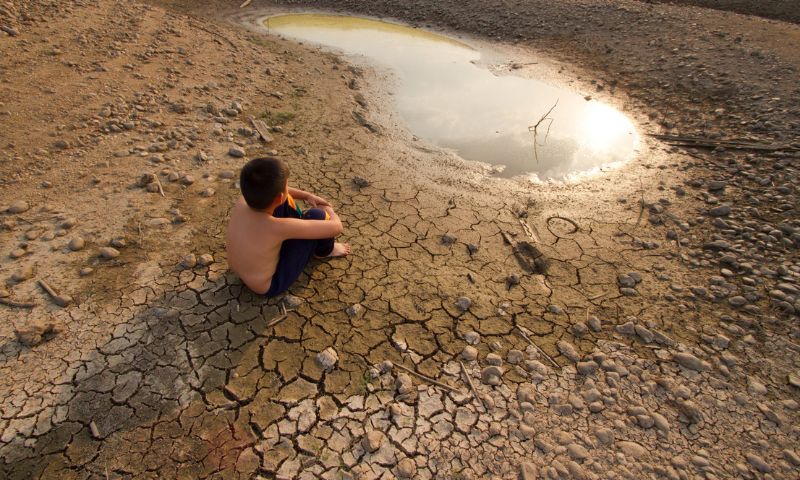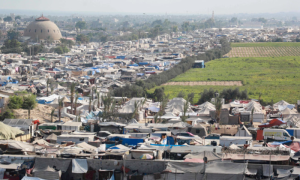TEHRAN: A new study conducted by international climate scientists at World Weather Attribution has found that the severe drought conditions that have plagued Syria, Iraq, and Iran for the past three years can be attributed to human-caused climate change.
The research, which examined temperature patterns, rainfall, and moisture levels, found that the ongoing West Asian drought, starting in July 2020, has been intensified by hotter-than-normal temperatures, causing a humanitarian crisis affecting millions of people in the region.
Lead author Friederike Otto, a climate scientist from Imperial College London, stated that without the 1.2 degrees Celsius global warming since the mid-19th century, the drought would not have occurred at such a severe level. The study employed scientifically valid techniques to identify the fingerprints of global warming, highlighting how climate change has exacerbated naturally dry conditions into a dire situation, leaving people thirsty, hungry, and displaced.
Climate Change Impacts in Iraq, Syria and Iran
The research indicated that while reduced rainfall alone did not show significant climate change fingerprints, the evaporation of water from lakes, rivers, wetlands, and soil was significantly higher due to climate change-spiked temperatures. The study authors calculated that the drought conditions in Syria and Iraq are 25 times more likely because of climate change, and in Iran, 16 times more likely.
Mohammed Rahimi, a climatology professor at Semnan University in Iran and a co-author of the study, emphasized the impact of global warming, stating, “Human-caused global climate change is already making life considerably harder for tens of millions of people in West Asia.” He added that with each degree of warming, these regions will become even more challenging to live in.
Kelly Smith, assistant director of the US National Drought Mitigation Center, affirmed the study’s findings, highlighting that drought is not uncommon in the Middle East, but the combination of climate change and existing vulnerabilities, such as degraded infrastructure and weakened water management exacerbates the situation.
























